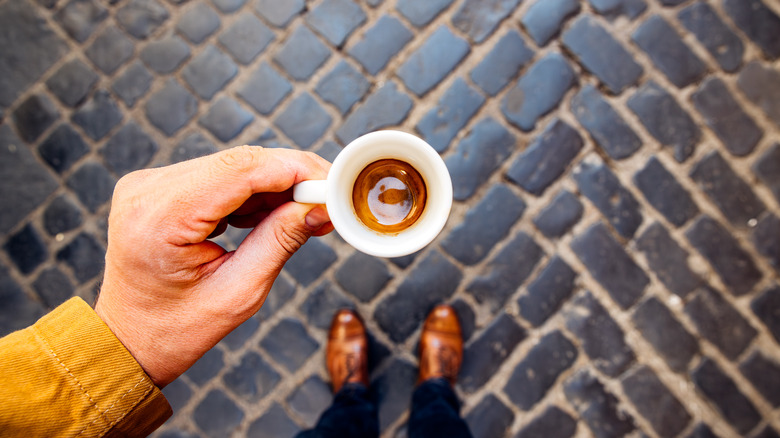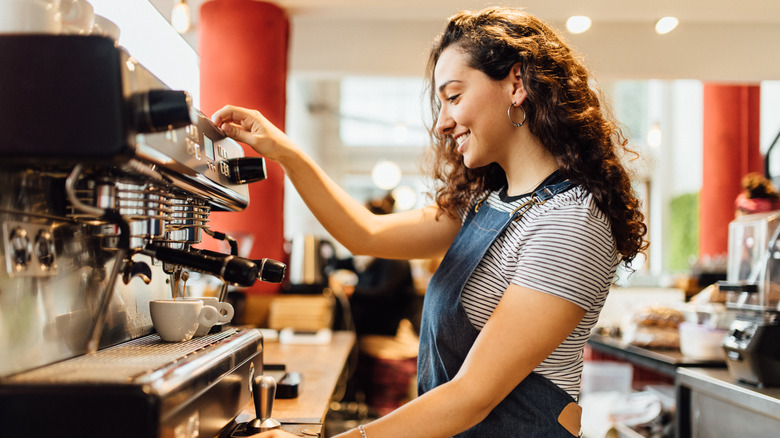Here's What Happens If You Try To Use Espresso Beans In A Drip Coffee Maker
Using coffee labeled as espresso in your drip coffee maker won't hurt you or your coffeemaker, luckily, but there are a few things to consider when making drip coffee using espresso grounds. First, espresso roasted coffees are almost universally much darker than coffee roasted specifically for drip. This means your coffee will come out incredibly rich, bold, and dark. Keep in mind that because it's not made with nine bars of atmospheric pressure like proper espresso, it won't have crema. (Though if you want espresso at home you can always try a Moka Pot.) If you don't love bold, rich drip coffee it might be best to avoid using espresso roasted beans. If drip coffee is never black enough for you, all power to you. Go ahead and drink the darkest roasted espresso you can find, just don't expect the darker roast to give you a bigger caffeine buzz.
Arguably the most important factor to consider when picking your coffee is grind size. Grind size refers to how big the particles of the ground coffee are. The larger the grind, the bigger the particles, and the easier it is for water to pass through. The smaller the grind, the slower the water passes through. The slower the water moves through the grinds, the more flavorful compounds the water can extract. Using espresso coffee in a drip machine will result in what we baristas call over-extracted coffee. The coffee sits in the water for too long which often means a bitter cup of coffee, and that's not good.
Open your mind about what coffee and espresso can be
Working as a barista like I did for five years means you get to try all manner of coffee. Light, medium, and dark roast; single origins and blends; fermented and natural coffees — the list goes on and on. There is a big wide world of coffee out there (like those insane, trendy elephant poop coffees) which is why it's funny we still think espresso has to be this dark concentrated concoction that's bitter and biting. A shot of espresso shouldn't mimic a shot of cheap well whiskey. But it does make sense for a few reasons.
Italy, the home of espresso, typically uses a dark roast for their espresso which is composed mostly of a type of coffee bean known as robusta. Robusta has long been maligned by the coffee community as being poor quality, which isn't necessarily true. Robusta simply yields earthier, richer coffees. Espresso and regular coffees which have chocolate, nut, or "roasted" flavors tend to pair well with milk (or are masked by milk, depending on who you ask). However you can absolutely use light roasted coffees for espresso. This does take a large amount of training and finesse to get it to taste just right. But when done perfectly, it yields a complex espresso that's fruity, sweet, acidic, and has just the right body. Whatever your preference is, it can always be fun to experiment.

